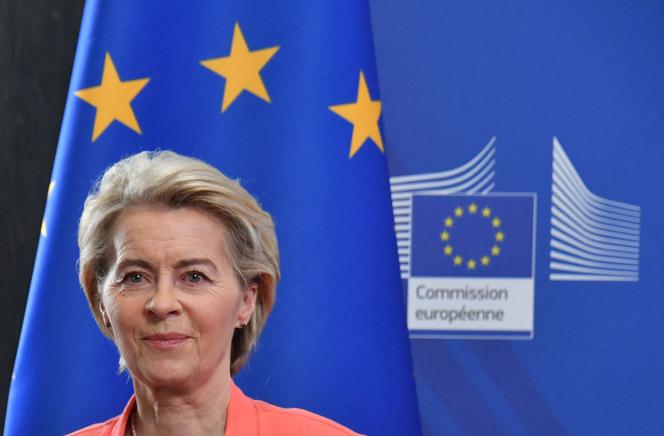Countries vowed, on Thursday, April 3, to hit back at US President Donald Trump’s global tariffs onslaught, but left the door open to negotiations, as markets tumbled over fears his trade war would damage the global economy. Holding up a chart of the sweeping measures in the White House Rose Garden on Wednesday, Trump called it “our declaration of economic independence.” “For decades, our country has been looted, pillaged, raped and plundered by nations near and far, both friend and foe alike,” Trump said, promising the move would restore a lost economic “Golden Age.”
Trump spared almost no nation on his “Liberation Day,” hitting friends and foes alike, and reserving some of the harshest tariffs for major trade partners, including the European Union and China. Trump reserved some of the heaviest blows for what he called “nations that treat us badly.” That included an additional 34% on goods from China – bringing the new added tariff rate there to 54%. The figure for the European Union was 20%, and 24% on Japan.
EU ‘prepared to respond’
Nations around the world reacted swiftly, with EU chief Ursula von der Leyen vowing that Europe was “prepared to respond” to the tariffs, calling them a “major blow to the world economy.” “The consequences will be dire for millions of people around the globe,” she said in a pre-dawn address while travelling in Uzbekistan, warning of higher food, medicine and transport costs as well as inflation. The European Commission president said Brussels was “preparing for further countermeasures,” which France and Germany both suggested could include targeting US tech firms with taxes.
French government spokeswoman Sophie Primas went further, on Thursday, to say the EU response would also “attack online services,” although she stressed the retaliation was still being negotiated among member states. The bloc’s response could also concern “access to our procurement contracts,” Primas said.
“Everything is on the table,” German economy minister Robert Habeck said. “The big tech companies have an incredible dominance in Europe and are largely exempt from European taxes,” he said.
However, the 27-nation EU and other countries also showed willingness to negotiate, with von der Leyen saying it was “not too late to address concerns through negotiations”, aiming for a cool-headed response to the tariff threat facing the bloc. “Let’s move from confrontation to negotiation,” she said.
Von der Leyen said the EU would be “watching closely what indirect effects these tariffs could have” and vowed to protect the continent’s industries. “Europe will stand at the side of those directly impacted,” she promised.
Help us improve Le Monde in English
Dear reader,
We’d love to hear your thoughts on Le Monde in English! Take this quick survey to help us improve it for you.
Take the survey
Indeed, the EU trade commissioner, Maros Sefcovic, will speak to his US counterparts on Friday. “Unjustified tariffs inevitably backfire,” Sefcovic posted Thursday, on X. “We’ll act in a calm, carefully phased, unified way, as we calibrate our response, while allowing adequate time for talks. But we won’t stand idly by, should we be unable to reach a fair deal.”
EU countries criticize the tariffs
Von der Leyen’s message was mirrored in multiple EU capitals. Germany backed the efforts for a “negotiated solution,” with Chancellor Olaf Scholz also insisting “Europe will respond decisively, strongly, and appropriately” if talks fail. Scholz called the US tariffs “fundamentally wrong.”
French Prime Minister Francois Bayrou said the tariffs were a “catastrophe” for the world economy but also “for the United States and for American citizens.”
President Emmanuel Macron, meanwhile, announced he would meet on Thursday, at 4 pm, with representatives of French sectors “impacted by the tariff measures” announced by Trump, his office said.
Italian Prime Minister Giorgia Meloni, who cleared her Thursday diary to focus on the response, described the new tariffs on the EU as “wrong” but said the bloc will do all it can “to work for a deal.”
Irish leader Micheal Martin said the tariffs were “bad for the world economy” but that Dublin would work with EU partners in “getting on a negotiation pathway with the US to limit the damage of these tariffs.”
Britain escaped relatively lightly, with a 10% “baseline” tariff increase, after a diplomatic offensive, though Prime Minister Keir Starmer warned there would still be an “economic impact” from the tariff on UK goods. The baseline rate will come into effect on Saturday, while the higher rates will kick in on April 9.
‘Extremely regrettable’
Reactions also came in quickly from elsewhere in the world, with Australian Prime Minister Anthony Albanese saying the tariffs are “not the act of a friend,” but he added that his country, which was also hit with the lower end of the tariff increases, would not retaliate.
China vowed “countermeasures,” but also said it was “maintaining communication” with Washington over trade issues.
Japan’s trade minister called the tariffs “extremely regrettable.”
Canada and Mexico were not affected by the new levies, as Trump has already punished them for what he said was their failure to stymie drug trafficking and illegal immigration. Canadian Prime Minister Mark Carney has vowed to “fight” the existing levies.
